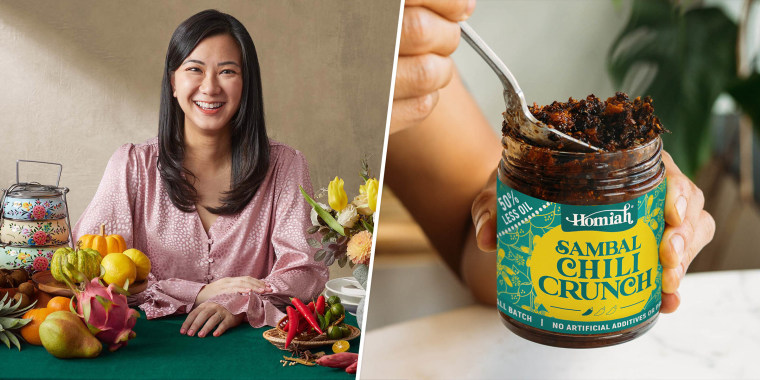Based out of New York, now working largely as a one-person team, Michelle Tew has been building her Malaysian food company Homiah since 2021.
Tew, who moved to the U.S. from Malaysia more than 10 years ago, tells TODAY.com that in an effort to ease early bouts of homesickness, she started hosting friends and cooking Nonya recipes inherited from her grandmother, including laksa and a chile-garlic-oil condiment she always knew as sambal.
The latter has placed her — along with several other companies — at the center of a public outcry over Momofuku’s recent attempt to trademark “chili crunch.”
The brand, founded by celebrity chef David Chang, has faced scrutiny over the past week for trying to block other businesses from calling its condiment “chili crunch” instead of what it’s calling the more common name: “chili crisp.”
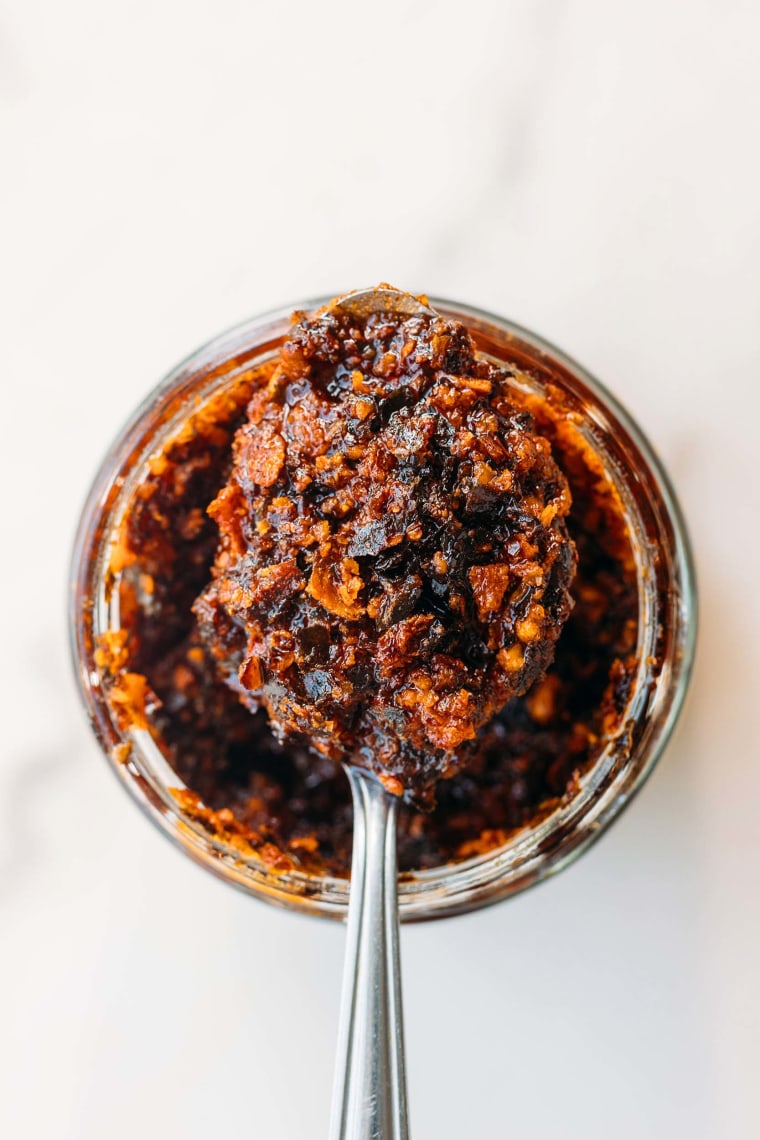
Tew says she’s been a cheerleader for Momofuku for years, watching its founder ascend into the upper echelons of the culinary world.
As the chef and his business continued to grow, so did awareness of Asian foods across the U.S. did. He’s used his platform to spread the word, but he’s far from the only one speaking it.
On March 18, Tew received a cease-and-desist letter from Momofuku. The letter, which TODAY.com viewed, said Homiah had five days to respond saying it would stop using the term. But Tew refused, opening her company up to the possibility of being sued for infringement if the pending trademark is approved.
“I was very distressed,” she says of the moment she learned about the letter, adding that she was also “really disappointed.”
“This is the Momofuku that I feel like I had a relationship with,” she continues. “I went to their restaurants, I’ve been buying their products, I’ve been a supporter for over a decade.”
Now, she’s deciding whether or not to move forward with her fight.
In the weeks since received the initial letter, Tew says she’s spent thousands of dollars on legal fees. She says it cost her around $5,000 just to have a lawyer write a letter in response. If she continues challenging the cease-and-desist, Tew estimates costs to land somewhere around $200,000. (For comparison, Homiah brought in around $500,000 in sales in 2023.)
“When we created our product, we wanted a name we could own and intentionally picked ‘Chili Crunch’ to further differentiate it from the broader chili crisp category,” a spokesperson for Momofuku and Chang tells TODAY.com. The company says it hopes to resolve branding disputes amicably.
Momofuku launched its chili crunch in 2018 and began selling jars of it in 2020.
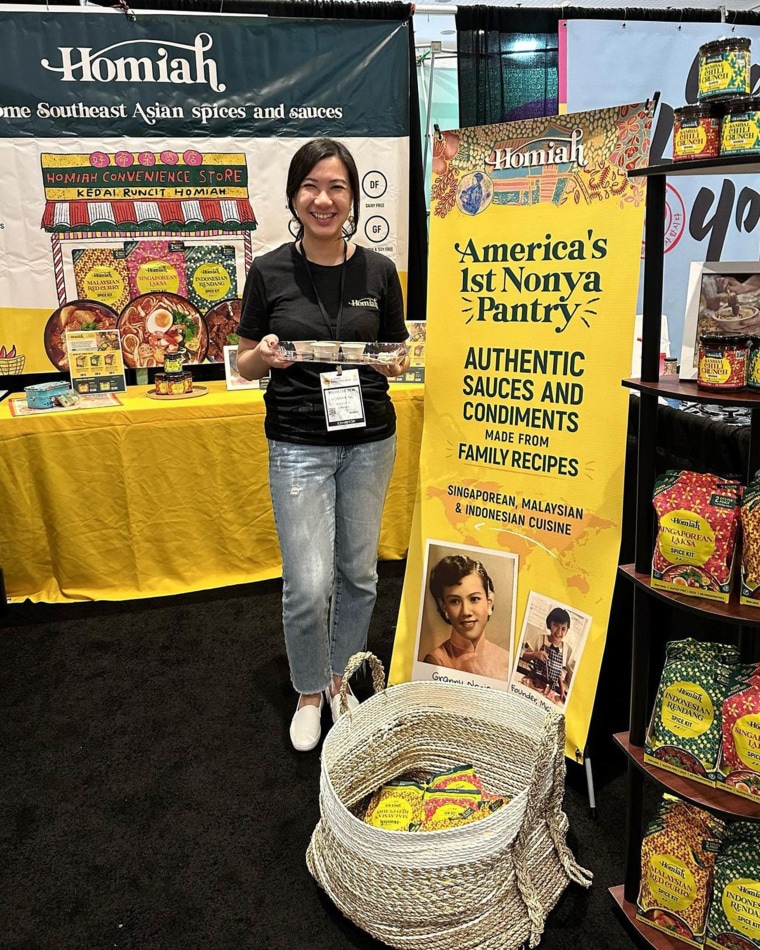
Homiah’s story
What began as small supper clubs hosted by Tew grew into larger gatherings and then pop-up events serving more than 200 people at a time. Guests asked where they could get their hands on the flavors and ingredients Tew was using, but she was bringing them back to the U.S. from Malaysia.
“We can’t get it from your local Whole Foods or something,” she’d say.
In 2021, Tew launched a Kickstarter campaign that raised $40,000, which she put toward her first Homiah production run and setting up a facility in Malaysia. In 2022, she officially launched the packaged foods company named after the Hokkien word meaning “to live the good life.”
Now, the brand is “growing bit by bit,” Tew says, adding that products are currently available online, through Amazon and in various independent grocers.
“As a really small business,” she says, “the most viable option would be to change the name.”
Tew says she considered it, but her husband and peers encouraged her to use her corporate background and industry contacts to see if she could push forward.
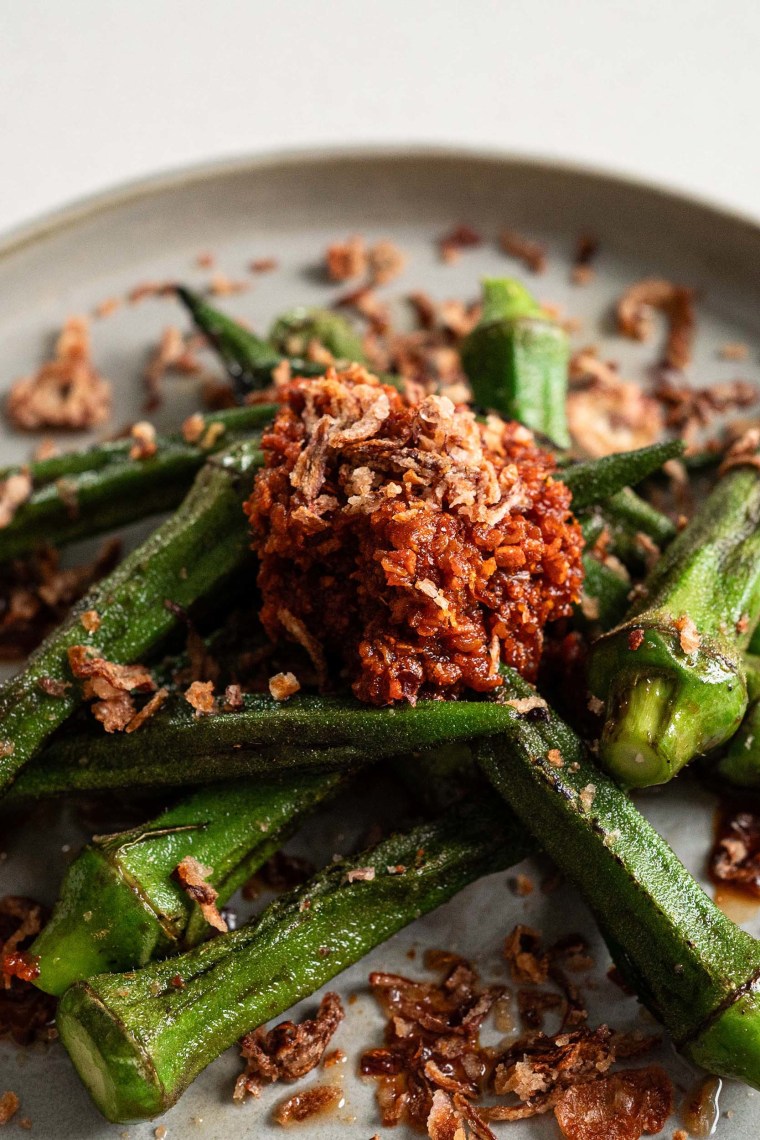
That’s when she started looking around and speaking with others who were selling the popular Asian condiment under the name “chili crunch.” She found several business owners who also received letters just by seeking out brands on Google and reaching out.
“I was really shocked,” she says. “Pretty much none of these folks wanna speak on the record, but at least three small business — all smaller than me — responded with how devastated they were, and that they were glad to receive my note. All of them had already, within, like, two days of receiving the letter, responded actually apologizing to Momofuku.”
Tew says that was when her feelings around obliging started to change. It made her realize this would be a “really successful strategy” for Chang’s company if no one decided to say anything.
She’s been overwhelmed by the outpouring of support she’s seen since the Guardian’s story broke on April 4. “I obviously didn’t expect this level of interest, of support,” she says.
“I’m quite grateful, whatever the outcome is on the Momofuku side, to see that [the public] really takes protecting members of the community so seriously,” she says, adding that it makes her feel like all the moments she spent questioning the difficulty of running a small business worth it. “They seem to care about the little sauces I sell, so I’m very grateful and touched.”
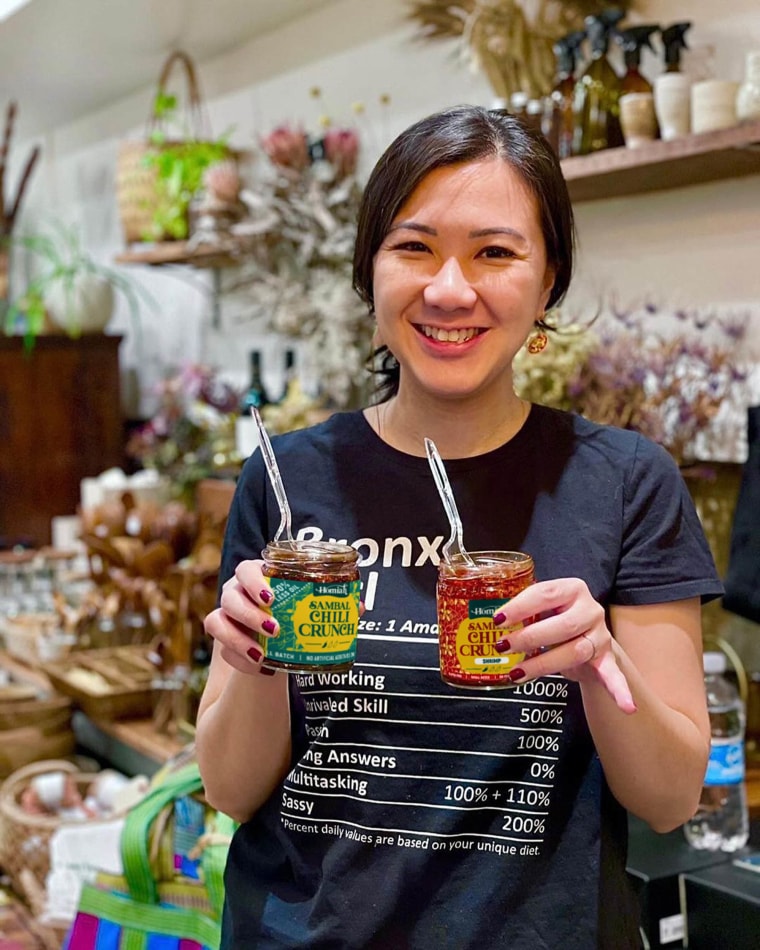
While she’s loving the noise on the internet, Tew says that hasn’t necessarily translated into sales. She saw a handful of orders come in on April 5, but that’s been the extent of it.
She says her biggest takeaway — in addition to realizing that consumers do want to know about the brands they’re buying from — has been that competition in the food world is more about resources than it is about product quality.
“There’s gonna always be a resource imbalance,” she says, referring to well-connected or well-funded companies. “If they want to — if they’re unethical or anticompetitive — they can make use of that against other businesses. And so, sometimes, it’s not really the American dream in that way.”
EDITOR’S NOTE (April 15, 2024 at 12:32 p.m. ET): Chang and a Momofuku executive walked back the trademark enforcement during an episode of the chef’s podcast, “The Dave Chang Show.” You can read the whole statement here.
